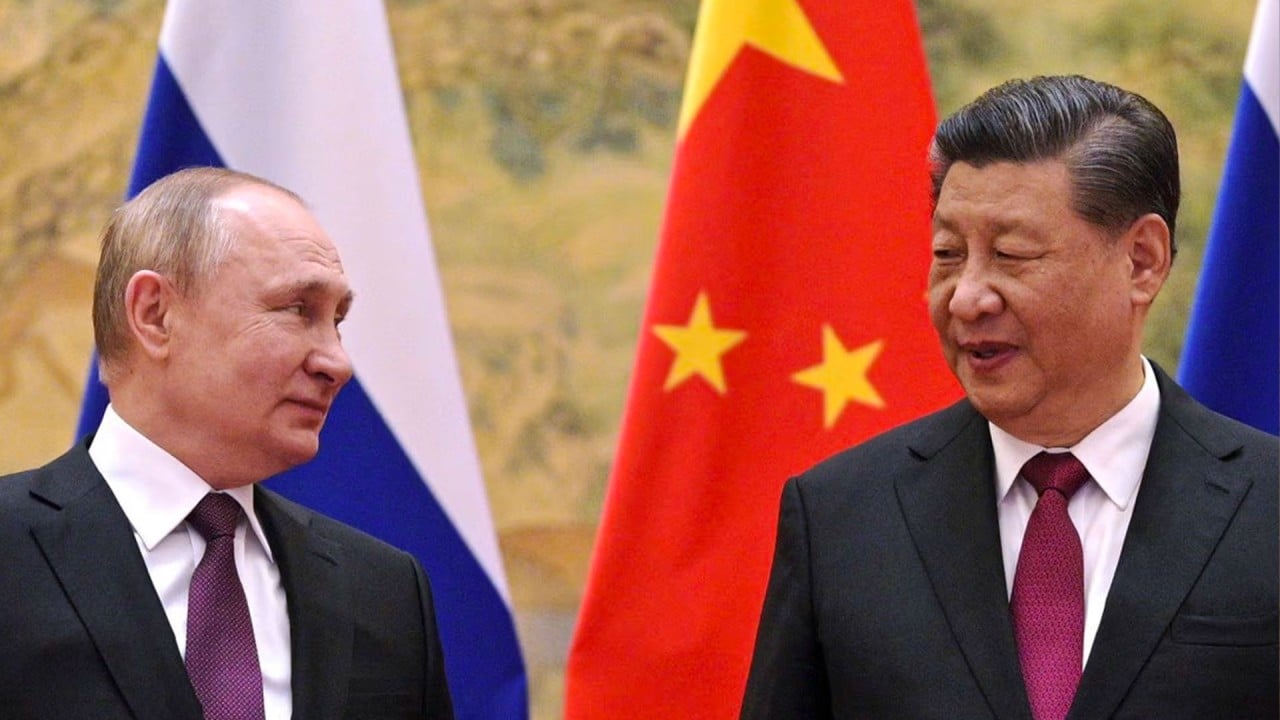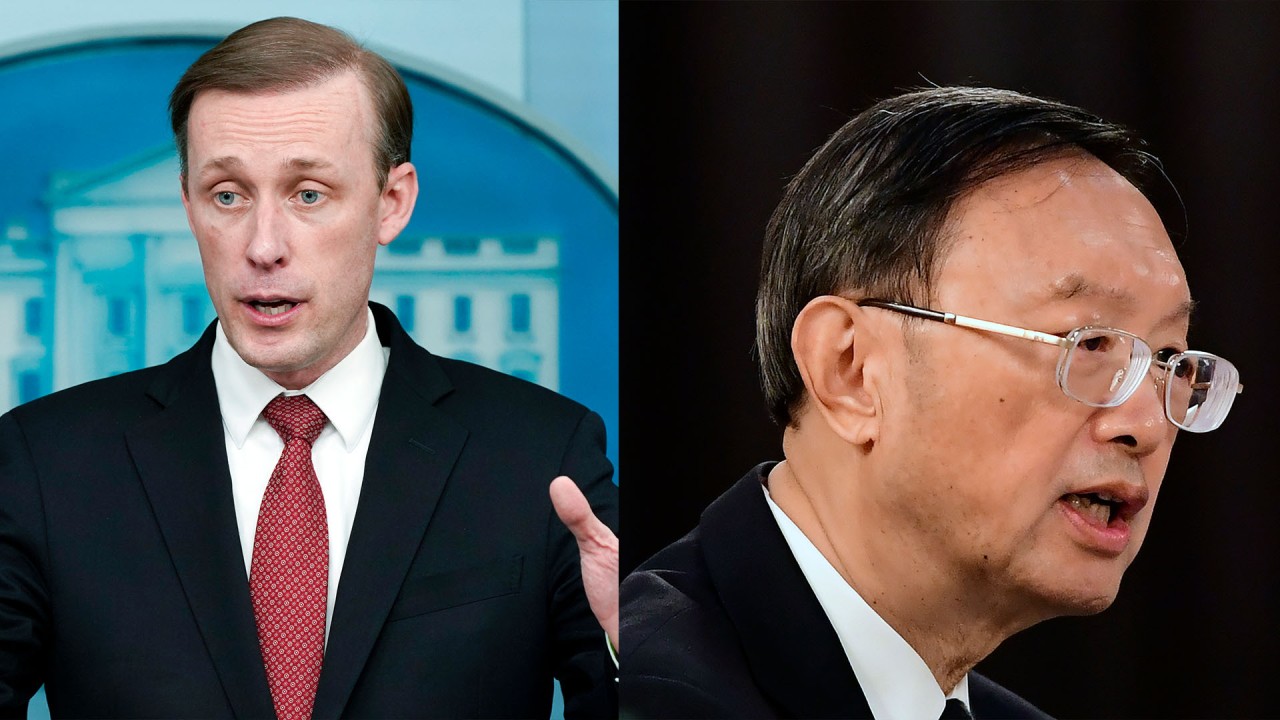
Xi-Biden talks: should China put limits on its no-limits ties with Russia?
- The US president warned of unspecified consequences for giving material support to Moscow
- Sanctions aside, Washington could find ways to sideline Beijing, analyst says
The US decision to not specify the fallout of any attempt by China to provide “material support” to Russia puts the ball firmly in Beijing’s court, analysts said.
White House press secretary Jen Psaki also declined to elaborate, saying that it would be “most constructive to have those conversations directly with the Chinese”.
Pang Zhongying, an international relations professor at Ocean University of China, said Biden’s ambiguity meant China had to draw boundaries on its “no-limits” friendship with Russia to avoid attracting wide-ranging sanctions itself.
“They are de facto allies without limits, but China now must have limits,” Pang said.
“There must be clear – at least relatively clear – limits imposed on yourself.”
Pang said that if China failed to set these limits, ties with the United States would further deteriorate, and lead to decoupling of the world’s two biggest economies.
These limits might apply not only to military support, but economic, trade and infrastructural investment ties with Russia as well.
“Over 100 countries are involved in imposing sanctions on Russia,” Pang said. “This has formed a sanctions system. If China offended this system, it’s likely to be sanctioned.”
Before the ban, Swift was used for more than 80 per cent of Russia’s international settlements. The US has also banned imports of Russian coal, oil and liquefied natural gas. Revenue from energy exports accounted for about 40 per cent of the Russian federal government budget in 2021.
Pang said it would be more difficult to ban China from Swift than Russia, but the US might still find ways to sideline China from the global economy, such as revoking China’s most-favoured-nation status.
The US’ push for an Indo-Pacific economic framework already showed its intention to exclude China from regional alliances, he said.
Li Mingjiang, an associate professor at Nanyang Technological University’s S. Rajaratnam School of International Studies in Singapore, said Biden’s ambiguity gave the US some room to manoeuvre if China did not fully comply with its demands.
But there were signs from Europe about what might happen if China traded with Russia.
“European countries continue to buy gas and oil from Russia. I doubt that the Americans can say anything critical of China if China buys or continues to buy energy resources from Russia,” he said.
China has been vocal in its opposition to sanctions.
“Imposing all-round, non-discriminatory sanctions would only harm the public,” state news agency Xinhua quoted Xi as saying.
China might also retaliate against those sanctions, which would only aggravate the decoupling, according to Lu Xiang, a US studies researcher at the Chinese Academy of Social Sciences.
“China won’t sit idle and watch sanctions being imposed at will,” Lu said.
Lu said the US could sanction Chinese banks and other financial institutions but whether it did came down to the perceived power difference between the two countries.
“It’s not about what China did right or wrong. The US might wish to sanction you when it’s determined there will be no consequences. If it believed that China was not capable of countering sanctions, then it would sanction China,” he said.
In its statement about the Friday call, the White House said most of the two-hour conversation was spent discussing Ukraine.
But the Xinhua report on the meeting began with a detailed description of talks on Taiwan.
“US-China relations have not yet emerged from the predicament created by the previous US administration, and instead have encountered more and more challenges,” Xi was quoted as saying.
“In particular, it is very dangerous for some people in the United States to send wrong signals to ‘Taiwan independence’ forces. If the Taiwan issue is not handled properly, it will have a destabilising effect on the relationship between the two countries.”
Pang said the references to a “destabilising effect” could be intended for a domestic audience, and the devastating costs of the Ukraine war had shown Beijing what not to do in relation to Taiwan.
Xi had also blamed the worsening of US-China ties on the failing of unspecified people in the US to implement Biden’s “positive attitude”, causing the US to “misjudge China’s strategic intention”.
Li said there might be a misperception among Chinese decision makers that Biden was more moderate on China and those around him were more hawkish.
“This is a bit of a misperception. If you look at the overall strategic approach, Biden is certainly the top decision maker.”
Nevertheless, the summit showed the leaders wanted stability in their ties, Li said.
The same day as Xi and Biden spoke, Russian President Vladimir Putin held talks with French President Emmanuel Macron and German Chancellor Olaf Scholz.



